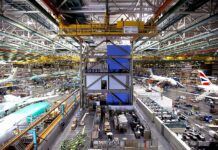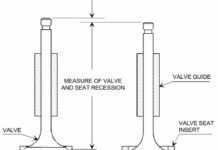Bell Textron announced today (Feb. 21) that its turboshaft-powered Model 505 is the first single-engine helicopter to fly using 100 percent sustainable aviation fuel (SAF). Bell credits its cooperation with Safran Helicopter Engines, refiner Neste, GKN Aerospace and Virent Energy Systems (a subsidiary of Marathon Petroleum Corp.) for making the first SAF-fueled flight of the Bell 505 possible.
Bell currently uses SAF for its own training fleet and demonstration aircraft operations. Bell also coordinates with Safran Engines, manufacturer of the Bell 205’s Arrius 2R powerplant, to guide customers in their efforts to convert to and monitor SAF testing. “This flight supports Textron’s ‘Achieve 2025 Sustainable Footprint’ goal for 20 percent reduction in greenhouse gas emissions across the enterprise, among other sustainability initiatives,” according to the company.
Michael Thacker, Bell executive vice president for commercial business, said, “Showcasing a single-engine aircraft’s flight capabilities with 100 percent SAF signals Bell’s commitment to alternative fuel usage and builds on its sustainability practices in its flight operations.”
“SAF is one of the key pillars in our strategy to decarbonize the helicopter industry,” added Valentin Safir, executive vice-president of programs for Safran Helicopter Engines. “Our engines are certified to operate on up to 50 percent SAF, and our objective is to certify in the coming years the use of 100 percent SAF, which can potentially result in carbon lifecycle emissions reductions by up to 80 percent.”




































But the problem remains — at the moment the plans for commercial SAF, to be used soon (2030) in all European airports calls SAF 50% vegetable oil and 50% kerosene.
That is because it is thought that almost all jet engines need the “aromatics” in kerosene to keep the integrity of seals and things. The new 100% SAF engines will take decades to arrive in any significant numbers, unless there is a mass scrap and replace programme. All the new A320 and 737 purchases are for max 50% motors.
So are airports going to have two systems, one for 50% and one for 100%? And will passengers be told which one their aircraft uses? Because if they are told SAF and then they find out it was only 50% SAF, expect happy lawyers.
I like the smell of the French Fry oil cars… but they make me hungry.
Almost 30 years ago (1994) at Oshkosh, a Glassaire with an Allison engine, probably a C-20 was being flown around while running on pure recycled vegetable oil. When it went by it smelled just like a deep fat fryer heating up.
And not one complaint from the audience. Maybe from the vegans, I dunno.
One more feeble industry attempt at woke virtue signaling. Look into the energy costs in producing “SAF” fuels.
Yes, but if the FAA approves French fry oil, I can scavenge free fuel from behind Wild Wings and KFC. 😉
Good luck, you will have to get in line behind all the off-grid counter culture dudes who have been running their Nisson diesels on the stuff for years.
No, you won’t. If SAF ever becomes more than a niche idea, fast food restaurants will be sitting on a gold mine. You are going to need a lot of oil to replace petroleum. In fact, you will probably see the end of deep frying in oil because the oil will be too valuable to waste on food production.
Woke virtue signaling? Or maybe just companies looking to shrink the enviro footprint of their products?
The first poster was correct.
The economics don’t exist for making jet fuel from vegetable oil. If it did, you would see farmers raising vegetables for oil–why go through TWO economies (raising crops (which requires lots of diesel fuel on its OWN to raise and harvest–and THEN refine it.
Barring a government mandate, nobody will refine, handle, dispense, or use the stuff–other than to tell people how “woke” they are. This is hardly “cutting edge technology”–it has existed for decades–it’s just that it makes no economic sense.
Just because you CAN do something, doesn’t mean you OUGHT to do it. If I see someone selling SAF–I’ll make it a point to avoid the place.
The question is, are they using recycled vegetable oil or virgin stock.
The irony of this is their are a number of folks that are staying away from anything other than Olive, MCT, & Avocado oil and anything fried for their optimum health. What if those behaviors becomes a new norm and fried foods decrease in popularity.
Then recycled fry oil becomes scarce as a feedstock and they’d be forced to create this portion of your sustainable fuel from virgin stock.